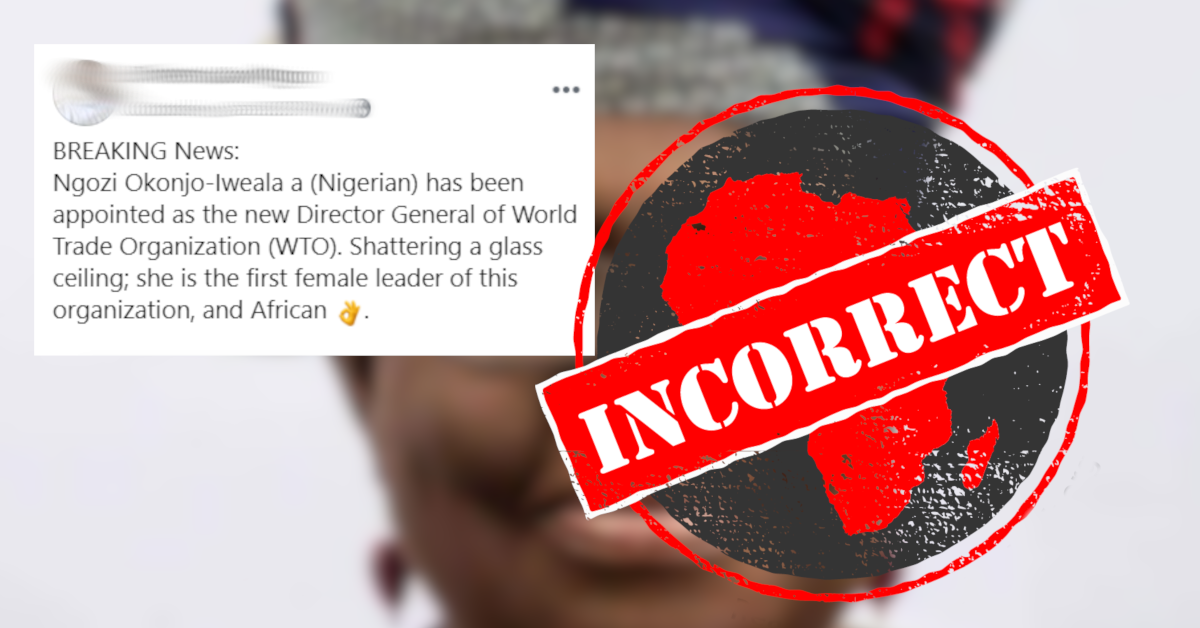Nigeria’s Ngozi Okonjo-Iweala, a prominent economist and international development expert, has been appointed director general of the World Trade Organization, claims a message circulating on Facebook since 8 October 2020.
“Ngozi Okonjo-Iweala has been appointed as the new director general of World Trade Organization (WTO),” it reads. “Shattering a glass ceiling; she is the first female leader of this organization. Congratulations ma'am.”
Is Okonjo-Iweala the new WTO director general? We checked.

In May Roberto Azevêdo announced he would step down as WTO director general on 31 August, a year before his mandate was due to expire. The process to appoint a new director general began on 8 June.
A month later, on 8 July, the WTO announced eight shortlisted candidates nominated by their governments. These were then whittled down to two, both women: Okonjo-Iweala of Nigeria and Yoo Myung-hee, South Korea’s minister for trade.
Okonjo-Iweala is currently one of two candidates for the director general position. She may be appointed, but at the time of writing was still a nominee.
A final round of consultations to determine Azevêdo’s successor will run from 19 to 28 October, after which the appointment will be announced. – Dancan Bwire
“Ngozi Okonjo-Iweala has been appointed as the new director general of World Trade Organization (WTO),” it reads. “Shattering a glass ceiling; she is the first female leader of this organization. Congratulations ma'am.”
Is Okonjo-Iweala the new WTO director general? We checked.

One of two on final shortlist
In May Roberto Azevêdo announced he would step down as WTO director general on 31 August, a year before his mandate was due to expire. The process to appoint a new director general began on 8 June.
A month later, on 8 July, the WTO announced eight shortlisted candidates nominated by their governments. These were then whittled down to two, both women: Okonjo-Iweala of Nigeria and Yoo Myung-hee, South Korea’s minister for trade.
Okonjo-Iweala is currently one of two candidates for the director general position. She may be appointed, but at the time of writing was still a nominee.
A final round of consultations to determine Azevêdo’s successor will run from 19 to 28 October, after which the appointment will be announced. – Dancan Bwire
Republish our content for free
For publishers: what to do if your post is rated false
A fact-checker has rated your Facebook or Instagram post as “false”, “altered”, “partly false” or “missing context”. This could have serious consequences. What do you do?
Click on our guide for the steps you should follow.
Publishers guideAfrica Check teams up with Facebook
Africa Check is a partner in Meta's third-party fact-checking programme to help stop the spread of false information on social media.
The content we rate as “false” will be downgraded on Facebook and Instagram. This means fewer people will see it.
You can also help identify false information on Facebook. This guide explains how.


Add new comment